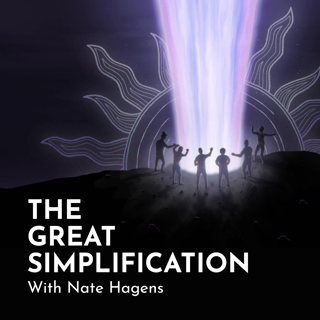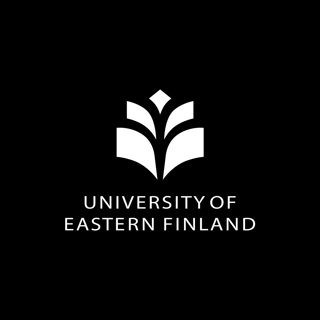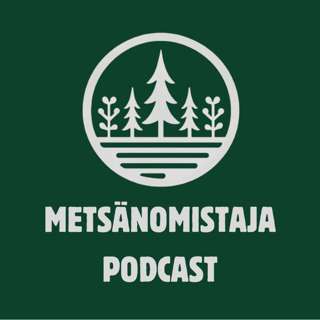
Reality and Perseverance in India: Pollution, Poverty, and Policy with Sunita Narain
(Conversation recorded on December 4th, 2024) It is an unfortunate reality that the countries least responsible for the climate and ecological crises we face are often the ones most vulnerable to their effects today and in the future. India – with its population of 1.4 billion, rapidly rising temperatures, and limited resources compared to many developed nations – finds itself at the crossroads of these challenges. What do India’s leading scientists and advocates have to say about coping with these extreme pressures? In this episode, Nate is joined by environmentalist and policy advocate Sunita Narain to discuss the intricate relationship between environmental issues and development, emphasizing the need for economically inclusive solutions. She highlights India’s challenges with sanitation, urban mobility, and climate change, while pushing for wiser approaches to governance and community planning. How can the moral and cultural history of India combine with science and innovation to guide policy making decisions? Why does ‘sustainable development’ need to go beyond environmental considerations to include the economic availability for each nation’s poorest citizens? And perhaps most importantly, how could today’s challenges position India as a global leader in creating an economic system that prioritizes the health and well-being of all life on Earth? About Sunita Narain: Sunita Narain has worked at the Centre for Science and Environment (CSE), a research and advocacy centre based in New Delhi, since 1982. She is currently Executive Director of the Centre, Treasurer of the Society for Environmental Communications and Editor of the bi-monthly magazine Down To Earth. She is a writer and environmentalist who uses knowledge for change. In 2005, she was awarded the Padma Shri, the fourth-highest civilian award of the Republic of India. She has also received the World Water Prize for her work on rainwater harvesting and for her political influence in developing paradigms for community water management. In 2005, she also chaired the Tiger Task Force, at the request of the Prime Minister, to develop a conservation action plan for the country after the loss of the tigers in Sariska. Sunita Narain was a member of the Prime Minister's Council on Climate Change as well as the National Ganga River Basin Authority. Show Notes and More Watch this video episode on YouTube --- Support The Institute for the Study of Energy and Our Future Join our Substack newsletter Join our Discord channel and connect with other listeners
15 Tammi 1h 12min

The Meaning Crisis: Wisdom, Purpose, and the Search for Coherence with John Vervaeke
(Conversation recorded on November 25th, 2024) The crises that our world is facing seem to be constantly growing, leading to enormous and devastating systemic effects across the globe. Yet, the ripples of the human predicament are also reaching our personal lives in unexpected ways – through chronic loneliness, loss of coherence to reality, and a widespread feeling of insignificance. How do we begin to navigate the crisis of meaning that seems to accompany modernity, exacerbated by feeling out of control in the broader world we live in? In today’s conversation, Nate is joined by professor of psychology and cognitive scientist John Vervaeke to discuss the state of ‘the meaning crisis’, including the social and cultural contexts that have fostered such pervasive loss of connection and purpose. Vervaeke also unpacks the key practices that he and others have found most effective in regaining wisdom and direction while living in the modern era. What can cognitive science tell us about the role of spirituality and religion in living a life that is rich in relationships and clarity? How do flow states, rituals, and lifelong learning contribute to strengthening mental health and fostering adaptability? And perhaps most importantly, how might reconnecting with a sense of humility, wisdom, and shared humanity help guide us toward a more meaningful, collective existence? About John Vervaeke: John Vervaeke, Ph.D. is an award-winning professor at the University of Toronto in the departments of psychology, cognitive science, and Buddhist psychology. He currently teaches courses in the Psychology department on thinking and reasoning, cognitive development, and higher cognitive processes. John is also the director of the Cognitive Science program where he teaches additional courses on Cognitive Science and consciousness, wherein he emphasizes 4E (embodied, embedded, enacted, and extended) models of cognition and consciousness. Additionally, John is the director of the Consciousness and Wisdom Studies Laboratory. He is also the co-author of the book Zombies in Western Culture: A 21st Century Crisis, which integrates Psychology and Cognitive Science to address the meaning crisis in Western society. He is the author and presenter of the YouTube series Awakening from the Meaning Crisis. Show Notes and More Watch this video episode on YouTube --- Support The Institute for the Study of Energy and Our Future Join our Substack newsletter Join our Discord channel and connect with other listeners
8 Tammi 1h 37min

Best of TGS: What Would You Do With a Magic Wand?
This year on The Great Simplification, we heard from 54 guests, 18 Reality Roundtable panelists, and Nate shared his thoughts across 31 Frankly episodes. But even after releasing 300+ hours of conversations and reflections since this show began, we are only just beginning to connect all the moving parts that make up The Human Predicament. As 2025 approaches, we invite you to reflect on this compilation of answers to a question that Nate asks every guest: “If you could wave a magic wand – and there was no personal recourse to your decision, what is one thing you would do to improve human and planetary futures?” While some of these answers would truly take magic to achieve, and others involve actions that we have the power to enact on the individual level and within the communities around us right now, we hope you feel motivated and inspired by the magical thinking of these experts to wave a wand wherever you find yourself in the unfolding story of The Great Simplification. Thank you so much for your continuing support, and for caring so deeply about the topics of this show. So, what would you do with a magic wand? Show Notes and More Watch this video episode on YouTube --- Support The Institute for the Study of Energy and Our Future Join our Substack newsletter Join our Discord channel and connect with other listeners
22 Joulu 202413min

Time Travel & The Superorganism: A Movie Idea | Frankly 81
(Recorded December 16, 2024) As we wrap up another year of thought-provoking discussions on The Great Simplification, Nate takes us on an imaginative journey in this week’s Frankly - exploring a potential movie script idea that blends systems, science and fiction. What if someone who deeply understood the challenges of today's global economic Superorganism could travel back in time? Armed with the knowledge of our current ecological and economic trajectory, what would they change? What could they change? Hollywood media could serve as a powerful tool to educate and inspire a wider audience on the systems science of our current predicament. Unpacking his movie idea, Nate shows us how the interventions highlighted - even if sci-fi - could educate audiences about the complex dynamics which have shaped the issues we now face. Through key character developments, we explore the constraints imposed by the path dependency of the Superorganism, realities about aggregate human behavior, and where degrees of freedom might exist to shift the trajectory of the future - in service of life. If you could travel back through time to the 1970s (or to any date), how would YOU intervene to shape the future? Could education, regenerative ecology, or “Superorganism-free zones” alter the trajectory of civilization? And more broadly, how might Hollywood still play a role in translating the systems science towards providing agency to the general public? Show Notes and More Watch this video episode on YouTube --- Support The Institute for the Study of Energy and Our Future Join our Substack newsletter Join our Discord channel and connect with other listeners
20 Joulu 202418min

The Great Simplification in Action: Building Resilience Through Local Communities with Christian Sawyer
(Conversation recorded on November 7th, 2024) Long-time listeners of The Great Simplification may have a good grasp of the many impending crises that humanity faces. But once we understand the scope of this predicament, what changes could we make to prepare in our own communities right now? Today, Nate is joined by local organizer and activist Christian Sawyer, to discuss how he’s built a pro-social community in rural Arizona. Christian emphasizes the power of local collaboration and demonstrates how the cultivation of social capital builds resilience in the face of challenges, as well as creates better lives for those who live in the community. Together, Nate and Christian explore the dynamics of community work parties, the skills learned through cooperation, and the significance of trust and friendship in building a supportive network. What do aspects of The Great Simplification look like in action? What are the most common challenges faced in group settings, and what lessons can it teach about the values of love, wisdom, and art in fostering meaningful connections? How can anyone, anywhere start creating local initiatives and engaging with ecological awareness? When fostering community, why should we emphasize empowering individuals in order to solve local problems and advocate towards the protection of our most important resources? About Christian Sawyer: Christian Sawyer is a local organizer, community lobbyist, sustainable home builder, musician, researcher, and groundwater activist in rural southeast Arizona. He is a journalist for the Arizona Agenda, as well as for Ground Party Papers, a local newsletter for alternative, off-grid, sustainable lifestyles. Join Christian's Local Sensemaking Slack Show Notes and More Watch this video episode on YouTube --- Support The Institute for the Study of Energy and Our Future Join our Substack newsletter Join our Discord channel and connect with other listeners
18 Joulu 20241h 10min

"Thank You for Ruining My Life" | Frankly 80
(Recorded December 5, 2024) It’s not everyday that a stranger thanks you for ‘ruining their life’. In this heartfelt Frankly, Nate reflects on a powerful encounter with a venture capitalist whose life was upended - and ultimately enriched - after immersing himself in the full content of The Great Simplification podcast. This man’s journey from techno-optimism to a deeper understanding of the limits of infinite growth on a finite planet shines a light on the purpose of this channel: to inspire and equip curious, prosocial individuals to channel their skills and creativity toward building a future that’s better than the default. Nate shares an email from this listener, detailing the emotional and intellectual wrestling match of confronting uncomfortable truths. From sleepless nights to moments of clarity, this journey underscores the transformative power of knowledge - not just to inform, but to empower action, shifting us from passive consumers of content to active creators of responses. What does it feel like to be confronted with the uncomfortable realities of the systems synthesis? Is it worth it? And are you ready to join a growing community of changemakers leaning into this challenge? Watch this video episode on YouTube --- Support The Institute for the Study of Energy and Our Future Join our Substack newsletter Join our Discord channel and connect with other listeners
13 Joulu 202411min

The Baby Bust: How The Toxicity Crisis Could Cause the Next Economic Crash with Jeremy Grantham
(Conversation recorded on November 5th, 2024) It is no secret that population dynamics significantly impact global stability. But what’s really behind today’s shifting global birth trends, the increased need for medically-assisted pregnancy, and the changing age demographics of industrialized nations? Furthermore, what are the implications of these shifts for future economic security? Today, Nate is joined by investment strategist Jeremy Grantham to discuss the critical but underreported issues surrounding toxicity and public health – particularly endocrine disruptors and their impact on human fertility, longevity, and societal structures. In this important conversation, Jeremy highlights the ubiquitousness of toxicity in our modern environments, the cultural and economic factors contributing to declining fertility rates, and the urgent need to transition to non-toxic materials and energy sources. In what ways could population decline pose serious economic challenges, particularly in aging societies? How might the alarming drop in sperm count affect future policies on immigration? Finally, how can we detoxify both our environments – and capitalism – before it’s too late? About Jeremy Grantham: Jeremy Grantham co-founded GMO in 1977 and is a member of GMO’s Asset Allocation team, serving as the firm’s long-term investment strategist. He is a member of the GMO Board of Directors, a partner of the firm, and has also served on the investment boards of several non-profit organizations. Additionally in 1989, Jeremy co-founded the Grantham Foundation for the Protection of the Environment. Prior to GMO’s founding, Mr. Grantham was co-founder of Batterymarch Financial Management in 1969 where he recommended commercial indexing in 1971, one of several claims to being first. He began his investment career as an economist with Royal Dutch Shell. Mr. Grantham earned his undergraduate degree from the University of Sheffield (U.K.) and an MBA from Harvard Business School. He is a member of the Academy of Arts and Sciences, holds a CBE from the UK and is a recipient of the Carnegie Medal for Philanthropy. Show Notes and More Watch this video episode on YouTube --- Support The Institute for the Study of Energy and Our Future Join our Substack newsletter Join our Discord channel and connect with other listeners
11 Joulu 20241h 47min

Shutting Off The Plastic Tap: A Global Treaty To Regulate Petrochemical Pollution? with Jane Muncke
(Conversation recorded on December 2nd, 2024) One of the central ecological challenges of our time is addressing the plastic and petrochemical pollution that has exploded over the past several decades. This global issue will require the cooperation of all nations. But based on the disintegration of UN negotiations for a treaty on plastic pollution last Sunday, this is easier said than done. In this special episode, Nate is joined by toxicologist Jane Muncke, who provides an in-depth analysis following the final day of discussions in Busan, South Korea. Together, they explore the complex intergovernmental negotiations that have defined the treaty process, as well as the environmental and health policies that have shaped these conversations in recent years. Will we ever be able to place chemical safety and public health above economic motivations at the global level? Could increased public awareness of the way these seemingly convenient products affect our health and well-being finally shut off the plastic tap? Finally, is it possible for the treaty to go beyond waste management and recycling, to instead move towards reducing the production and consumption of plastics at the source? About Jane Muncke: Jane Muncke holds a doctorate degree in environmental toxicology and a MSc in environmental science from the ETH Zurich. Since 2012 she has been working as Managing Director and Chief Scientific Officer at the charitable Food Packaging Forum Foundation (FPF) in Zurich, Switzerland. FPF is a research and science communication organization focusing on chemicals in all types of food contact materials. Jane Muncke is a full scientific member of the Society of Toxicology (SOT), the Society for Environmental Chemistry and Toxicology (SETAC), the American Chemical Society (ACS) and the Endocrine Society. Since 2019, she has been an elected expert member of the Swiss Organic Farming Association Bio Suisse’s committee on trade and processing where she contributes to further developing the standards for processing and packaging of organic food. She is a director of the FAN initiative, a collective of experts warning about resource overshoot, the polycrisis, and related societal collapse. Show Notes and More Watch this video episode on YouTube --- Support The Institute for the Study of Energy and Our Future Join our Substack newsletter Join our Discord channel and connect with other listeners
8 Joulu 202447min





















